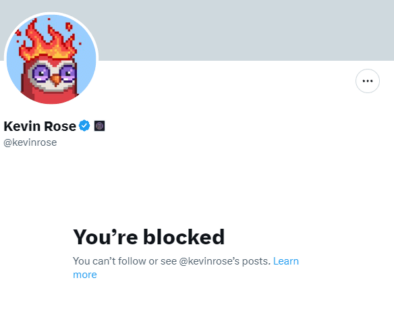PROOF of FAILURE
Stop the presses, folks! The NFT world was rocked when Proof of Conference (POC) announced the cancellation of their much-anticipated event. But hold on to your hats, because PROOF is coming in hot with some seriously juicy details about what went down!
After crunching numbers for weeks, chatting up potential sponsors, and taking the community’s pulse, PROOF made the tough decision to cancel the conference. But don’t worry, they considered all the options, from downsizing the event to a smaller venue, to hosting a virtual gathering, to lowering ticket prices. PROOF made the tough choice to pull the plug in the end, but they’re not leaving their fans high and dry!
POC is offering refunds for tickets, upgrades, and transaction fees, and they even worked with their hotel partners to make sure all bookings are fully refundable. And for those still headed to LA, POC’s got your back with rebooking assistance. They know it’s a bummer to miss out on this event, but don’t fret, it’s not the end of the road!
PROOF wants to keep the party going with some smaller, more intimate events this year until the market’s ready for another big shindig. Some folks in the community threw shade, grumbling about POC’s $200 million budget and lack of execution. But let’s be real, it’s a bummer not to get your hands on those sweet fanny packs, am I right?
In the end, PROOF’s got the community covered, giving fans the lowdown and options to get refunds, and a promise to bring the heat with some smaller-scale events. Keep your eyes peeled for what’s next in the NFT universe!
4 days ago Kevin rose promised the following:
less talk and promises, more action and focus. that is my mantra for PROOF/Moonbirds this year.
less talk and promises, more action and focus. that is my mantra for PROOF/Moonbirds this year.
— KΞVIN R◎SE (🪹,🦉) (@kevinrose) February 15, 2023
Are Proof and Moonbirds dead?
The announcement made by PROOF suggests that they have decided to cancel a conference that was supposed to take place. They argue that the cancellation will allow them to focus on their main priorities, which are developing products, art, and fostering connections within their community. PROOF also claims that they will be providing updates on their initiatives on March 2nd, and that they will continue to hold smaller events until market interest warrants a larger conference.
However, the language used in the announcement suggests that the cancellation of the conference might be a way to distract from its failure. The statement begins by emphasizing how difficult it was to organize the conference, implying that the cancellation was a difficult decision to make. This language could be seen as an attempt to deflect criticism or blame for the failure of the conference. Additionally, the organization emphasizes their focus on execution and provides a specific date for updates on their initiatives, which could be interpreted as an attempt to shift attention away from the cancelled event.
Moreover, the announcement doesn’t provide a clear explanation of why the conference was cancelled or what led to its failure. This lack of transparency might further suggest that the cancellation was not entirely due to their focus on their core priorities, but rather a consequence of unforeseen circumstances. The organization’s assurance that smaller events will continue to be held until market interest warrants a larger conference may also be a way to maintain a semblance of normalcy and prevent any backlash from their community.
While the announcement suggests that the organization is refocusing on its core priorities, the language used and lack of transparency may indicate that the cancellation of the conference was an attempt to distract from its failure. It is important for organizations to be transparent with their community about the reasons for event cancellations to maintain trust and avoid any suspicions of ulterior motives.
Web2 founders not cut out for web3?
Kevin Rose is a prominent technology entrepreneur and investor, best known as the co-founder of Digg, a social news website that became popular in the mid-2000s. He has since been involved in various other ventures and investments, including the creation of a venture capital firm called True Ventures.
In recent years, Rose has been an active participant in the web3 ecosystem, which refers to the decentralized and blockchain-based technologies that are emerging as a new paradigm for the internet. He has invested in several web3 startups and has been a vocal advocate for the potential of blockchain technology to transform industries.
However, Rose’s foray into web3 has had its share of highs and lows. On one hand, he has been involved in some successful projects, such as the creation of the popular cryptocurrency trading app, Blockfolio, which was acquired for over $150 million. On the other hand, he has also faced some setbacks, such as the failure of his decentralized finance (DeFi) project, Oink, which shut down after only a few months.
Despite these challenges, Rose’s experience in the web3 space has been a valuable learning opportunity for him and has added another notch to his belt as a tech entrepreneur and investor. It also highlights the reality that even experienced entrepreneurs are not guaranteed success in the web3 space, which is still in its early stages and subject to many uncertainties and challenges.
Overall, Rose’s involvement in the web3 ecosystem has been a testament to his willingness to embrace new and emerging technologies and to take risks in pursuit of new opportunities. His experiences and insights will likely continue to be valuable for him and for others in the tech community as the web3 ecosystem continues to evolve.


